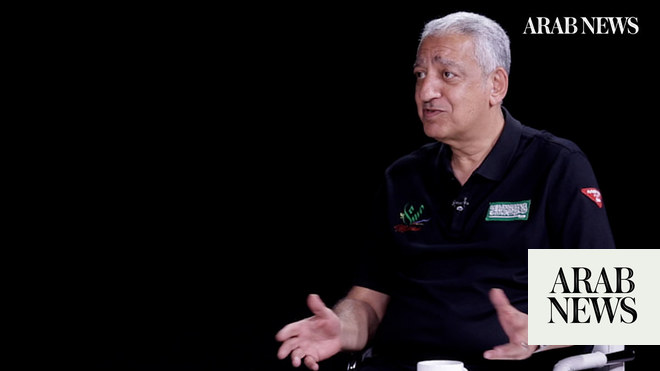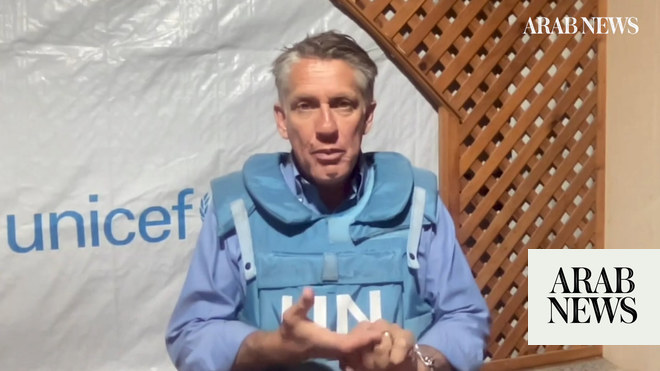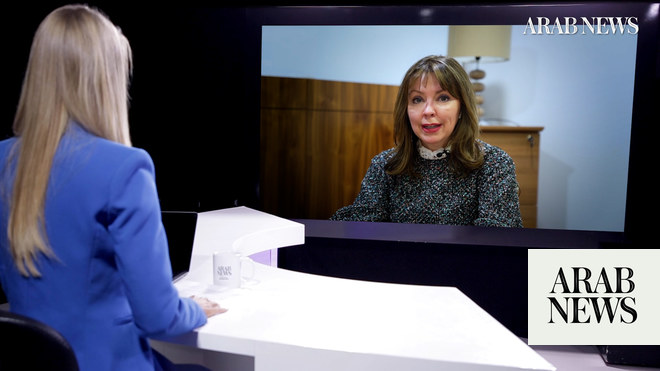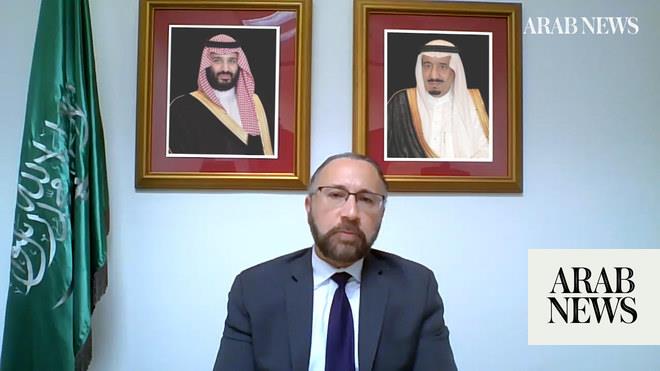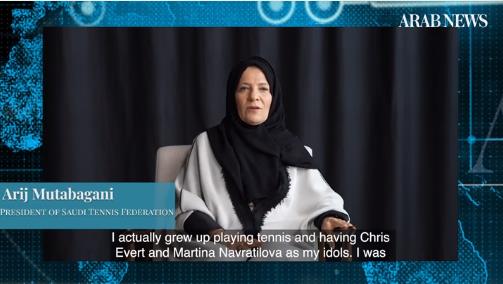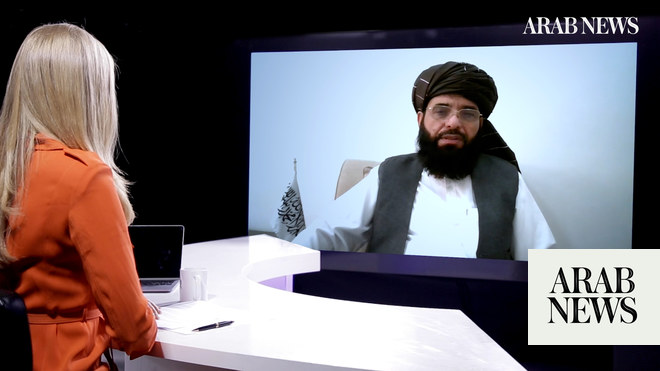
RIYADH: A senior Taliban leader has admitted that his country is facing dire economic straits because of back-breaking sanctions and lack of recognition by the global community.
Speaking to Katie Jensen in the latest episode of the Arab News “Frankly Speaking” show, Suhail Shaheen said the Taliban had inherited a weak economy and an extremely impoverished Afghanistan when it seized power in Kabul in August 2021.
“The poverty that we are experiencing today was inherited from the past, from the past 20-year-long regime during which foreign forces had a presence in Afghanistan,” he said.
Shaheen said though it was claimed that “the occupying powers” spent billions of dollars in the country, “those dollars went into the private pockets of the warlords. The common people continued to live below the poverty line.”
That situation worsened, he claimed, with the imposition of economic sanctions on Afghanistan after the Taliban took control over the country, as the restrictions led to more poverty.
Shaheen accepted no responsibility for the deteriorating state of affairs in Afghanistan since the Taliban took over, and instead blamed Western powers — “those who imposed the sanctions and those who favored the warlords” — for the economic crisis. “We are working to tackle these issues and there are some big projects such as road construction that generate internal revenue,” he said.
Shaheen appeared noncommittal and evasive while talking about restrictions on women’s education. At times his statements were full of contradictions and he was on the defensive.
At first, he said there was no ban on women studying. But when confronted with incontrovertible facts about women being barred from attending schools and institutions of higher learning, he attempted to justify the closures, saying: “But it (education) should be according to our rules and values.”
Reminded that all Muslim and Islamic countries around the world provide full educational opportunities for women in schools, colleges and universities, Shaheen responded: “Women should have access to education in an Islamic environment. Ours is an Islamic society (and when there is) a proper environment, they will have the right to have access to education.”
He described the country’s political relations with its neighbors as based on mutual respect, and spoke at length about the recent border clashes between Afghan and Iranian forces, as well as the country’s tense relationship with Pakistan and its evolving ties with the US under the Biden administration.
He argued that the UN needs to look at the situation on the ground, claiming that the decision by the UN and many countries not to recognize the Taliban is “politically motivated rather than based on ground realities.”
Shaheen insisted that the Taliban currently has complete control over all of Afghanistan. “We have secured all the borders. We have control of the entire country. We are able to defend our people and our country. We have the support of the people,” he said.
Turning to Pakistan’s relations with its neighbor under Taliban rule, Shaheen asserted that Afghanistan is an independent country, adding: “We liberated our country. We fought for 20 years against 54 countries.
“We are freedom-loving people. We want peaceful coexistence and ties not only with our neighbors, but with all the world.”
He said the Taliban will not allow anyone to use Afghan territory as a base for operations against neighboring countries or any other nation, including the US.
Shaheen sought to make it clear that the Taliban has no ties with Pakistan’s security forces. “Our policy is peaceful coexistence and positive relations with neighbors in other countries,” he said. “As for their policies, you must ask them.” Responding to Pakistan’s charge — a major source of friction between the two neighbors — that the Taliban is supporting and hosting the Tehreek-e-Taliban Pakistan, a terror group banned in Pakistan, Shaheen said the TTP is “not in Afghanistan.”
He contended that the TTP operates out of Pakistan’s lawless tribal areas, saying: “They are inside Pakistan. That is their (Pakistan’s) responsibility, not ours.”
Regarding the border clashes with Iran in May this year, Shaheen said the problem was rooted in a 1973 water-sharing treaty between the two countries, referring to an accord under which Afghanistan is committed to sharing water from the Helmand River with Iran at a certain rate.
According to Shaheen, the issue should be solved based on the 1973 treaty, as well as developments, including climate change, that have occurred since its signing.
“But if anyone is using force, we know the history and we will defend our people. That is our right. We are defending. We are not violating anyone’s rights,” he said.
Insisting that the Iranians “attacked our forces,” he said: “Our forces have to defend themselves and that is what has happened. Defending ourselves was our right and no one can impose agreements on us based on the use of force.”
He said that “the seniors” from the Iranian and Afghan sides “came together to resolve the issue through talks.”
Asked whether the Afghans have the means, the army and the resolve to stand up to Iran, Shaheen made a telling comment: “(What happened in the last) 20 years is good evidence and proof of how we defend our country.”
When he said that Afghan territory would not be used to train foreign terrorists, he was reminded of the presence of Al-Qaeda chief Ayman Al-Zawahiri, who was in Kabul when he was killed in a US drone strike in July last year. However, Shaheen dismissed that as a mere allegation.
“If journalists say there are training centers, then they should tell us where the centers are located,” he said. “If someone is sitting 10,000 km away behind a desk and writing reports based merely on what is in the media, how can that reflect the realities in Afghanistan?
“These reports are not based on the realities in Afghanistan; rather, they are only politically motivated reports. They are mere allegations.”
The Taliban recently welcomed comments US President Joe Biden made on the sidelines of a press conference on June 30 about the withdrawal of American forces from Afghanistan in 2021. Biden denied mistakes had been made during the withdrawal, saying: “Do you remember what I said about Afghanistan? I said Al-Qaeda would not be there. I said it wouldn’t be there. I said we’d get help from the Taliban. What’s happening now? What’s going on? Read your press. I was right.” Nevertheless, Shaheen rejected the idea that Taliban is cooperating with the US. “We have the Doha Agreement. Based on that agreement, the Americans agreed to withdraw their forces from Afghanistan, and we agreed not to allow anyone to use Afghanistan against the US,” he said.
“That is our commitment and we honor that commitment. We are operating independently, not with any government — neighboring ones, regional ones or those anywhere in the world — including the US.”
However, Shaheen did indicate that the Taliban’s relationship with the US has changed since “the occupation.”
“When they occupied our country, we fought against them in order to liberate our country. If anyone’s country is occupied, would you not fight for its liberation?” he said.
“That’s what we did, and now we are building our country. We aim to eradicate poverty and to provide job opportunities for our people. For that we need cooperation from all countries, and if they are willing, we welcome them.”
Shaheen made an appeal to the global community to come to the rescue of Afghan farmers who have given up the cultivation of poppies.
“In the past 20 years, they (the foreign forces) spent, according to them, billions of dollars in order to eradicate poppy cultivation, but they failed. They were also trying to prevent drug trafficking, but they failed,” he said.
“Now we have a total ban on poppy cultivation according to the (April 2022) decree by our supreme leader (Hibatullah Akhundzada). And we have succeeded. Independent reports say poppy cultivation is down by 80 percent, but we say it is down more than that. We have achieved this by our own ways and means.”
A report published last month by the geospatial analytics firm Alcis said recent satellite images showed an “unprecedented” decrease in the cultivation of opium poppy in Afghanistan, with cultivation in the largest-producing southern provinces down by at least 80 percent compared with last year.
“It is now an obligation for the international community to come forward and help (Afghan) farmers and provide them with substitute crops in order to make the ban sustainable,” Shaheen said.
“In Afghanistan, farmers have two or three acres of land, which is not enough to feed their families. There should be something from the international community for those farmers who are abiding by the ban and who have stopped cultivating poppies.”






